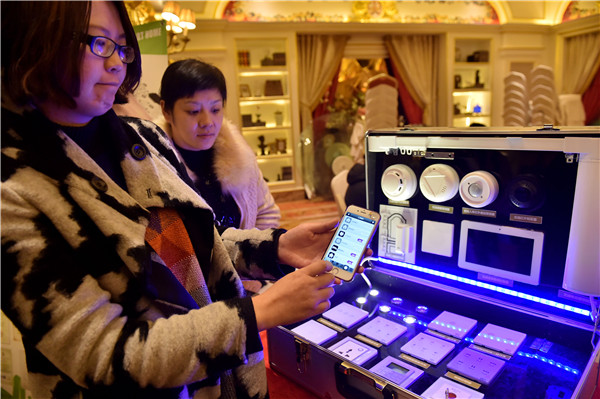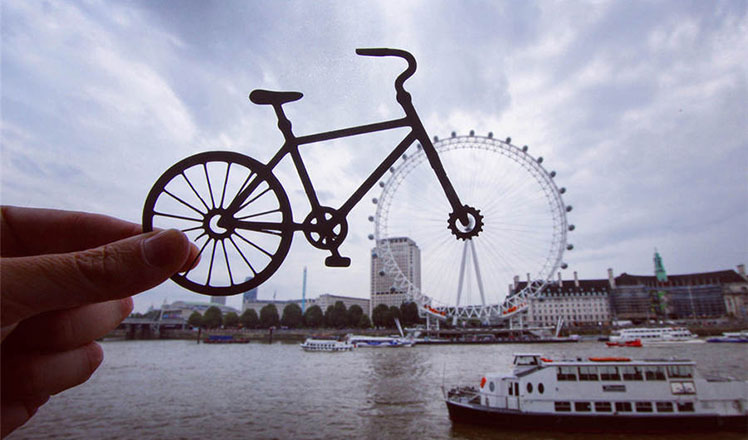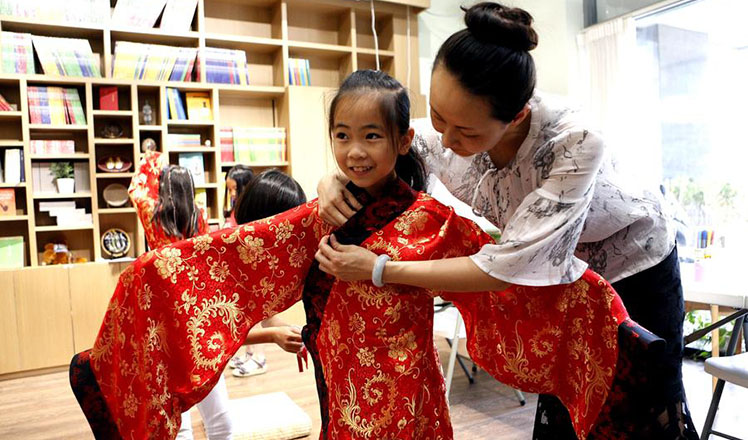POWER IN OUR HANDS
Updated: 2016-07-09 02:36
By Karl Wilson(China Daily USA)
|
||||||||
The next generation of smartphones, loaded with high-tech sensors, looks set to revolutionize every aspect of our lives, Karl Wilson reports.
 |
|
An exhibitor shows how to control home appliances using smartphone apps at a smart city exhibition in Hangzhou, Zhejiang province. liang zhen / for china daily |
There was a famous ad campaign once for American Express that used the phrase: “Don’t leave home without it.”
When credit cards were introduced, the little pieces of plastic that slip so neatly into the wallet or purse helped to replace cash in our pockets.
Today, our smartphone could well be advertised as something “you can’t leave home without”.
Not all that long ago, phones were simple handheld devices that allowed us to make and receive calls. But now, smartphones have become indispensable to our lives.
Sensors in our phones allow us to take videos and pictures, navigate where we are going, locate people and read our heart rate, among many other things. Every day, apps are being produced for just about everything, and there is no end in sight.
Richard Yu, CEO of the consumer business group with Chinese telecom giant Huawei, said in a speech last year that the next generation of smartphones will see the relationship between the phone and human beings become “even closer, evolving towards a synthesis of man with his world”.
Yu said the next-generation phone will be the “superphone” and predicted that we should see it around 2020.
“The superphone will be a living organism, like our families and friends, recording our behaviors and habits, and understanding our likes and preferences.”
He said that through the development of sensors such as object recognition technology and 3D scanning, the superphone will “enhance its perception of humans, objects and the environment, creating a virtual reality which mirrors the physical world”.
“In fact, many sensor technologies are similar to the senses of humans and animals. In the future, gustatory sensors will be able to differentiate tastes, and auditory sensors integrated with artificial intelligence will be able to identify the source and distance of sounds,” Yu said.
Dian Tjondronegoro, an associate professor with the science and engineering faculty of the Queensland University of Technology, said: “Sensors are taking us to a whole new level.
- Eid al-Fitr celebrated worldwide
- Swedish PM looking at tightening laws after festival sex attacks
- British PM race cut to 3 hopefuls as 2 contenders exit contest
- Chinese herbalists offer free US treatment
- Obama praises Hillary's judgement hours after FBI's censure
- Rio mayor tells Olympic visitors: 'Don't expect New York or London'

 Griezmann scores twice to lift France into Euro final
Griezmann scores twice to lift France into Euro final
 Life goes on in flooded Wuhan
Life goes on in flooded Wuhan
 Paper cutouts offer a new view of world landmarks
Paper cutouts offer a new view of world landmarks
 Animals occupy Shanghai
Animals occupy Shanghai
 Beijing Muslims mark end of Ramadan
Beijing Muslims mark end of Ramadan
 Remember emerging heroes in China's floods
Remember emerging heroes in China's floods
 Ronaldo powers Portugal into Euro 2016 final
Ronaldo powers Portugal into Euro 2016 final
 Culture Insider: Six things you may not know about Minor Heat
Culture Insider: Six things you may not know about Minor Heat
Most Viewed
Editor's Picks

|

|

|

|

|

|
Today's Top News
Ministry slams US-Korean THAAD deployment
Two police officers shot at protest in Dallas
Abe's blame game reveals his policies failing to get results
Ending wildlife trafficking must be policy priority in Asia
Effects of supply-side reform take time to be seen
Chinese State Councilor Yang Jiechi to meet Kerry
Chinese stocks surge on back of MSCI rumors
Liang avoids jail in shooting death
US Weekly

|

|









